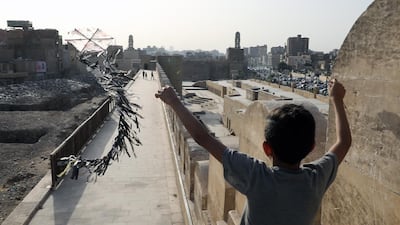Egypt's lenders will maintain thier overall financial stability despite the impact of the coronavirus pandemic on the country's economy and the banking system being affected by slowing consumption and a decline in tourism revenue.
The country’s residents and businesses have shown resilience to upheavals, having lived through the 2011 upheaval, Moody’s Investors Service said. The country’s economy is stronger as a result of critical reforms instituted during the International Monetary Fund programme, the ratings agency said.
Banks are heavily exposed to the Egyptian government through large holdings of sovereign bonds, which amount to 36 per cent of their combined assets. However, lenders in the most populous Arab country have maintained strong and stable deposit base and their funding structures are highly liquid, Moody’s said.
“Loan performance will deteriorate, but two-thirds of banks’ investments are in government securities and other liquid assets whose outlook is stable,” the agency said. “Banks' high exposure to government debt links their creditworthiness to that of the sovereign.”
Earlier in the week Moody’s affirmed Egypt’s B2 rating on the resilience of the country’s credit profile, as the IMF approved $2.77 billion (Dh10.17bn) of emergency funding to help it cope with the financial and economic fallout of Covid-19.
The affirmation of the rating and stable outlook reflect Moody's view that the most populous Arab country's credit strength is not expected to change materially, relative to similarly-rated sovereigns, due to the global shock posed by the pandemic.
Egypt's government has “acted swiftly” in responding to the crisis, allocating resources to tackle the health emergency and providing targeted support to the areas most affected, Geoffrey Okamoto, first deputy managing director and acting chairman of the IMF’s executive board, said on Monday.
Egypt’s central bank has cut interest rates and postponed repayments of existing credit facilities to allow banks to keep lending. However, the $2.77bn funding through the IMF’s Rapid Financing Instrument, was still needed to “correct large external and domestic imbalances”, he said.


